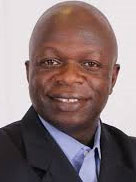 When fashion clashes with religious customs
When fashion clashes with religious customs
By Lekan Oguntoyinbo, NNPA Columnist
I believe customs generally fall into three categories: inexcusable, curious if a little questionable, and fascinating.
Some customs – the rigid caste system in India, the practice by in-laws in many parts of Africa of putting newly-widowed women and their kids out on the streets, as well as deeply held racist beliefs and practices in the United States, particularly in the Deep South – easily qualify as abhorrent. So do others such as the murders of female rape victims in many Middle Eastern countries by male relatives, female genital mutilation and ritual human sacrifices in many African countries.
Most right thinking people would agree that such practices are just plain wrong.
Often times, though, it is the curious customs that stir things up. They amaze us and maybe even cause us to shake our heads.
I’ve been thinking a lot about curious customs lately in view of the first couple’s recent visit to Saudi Arabia – and the chatter over what the Washington Post called the First Lady’s “fashion diplomacy.” Michelle Obama met the Saudi’s new King Salman dressed in dark pants and with her hair uncovered.
It was a blatant political statement.
Despite its enormous oil wealth, Saudi Arabia is a rigidly tradition-bound society. Adulterers may be stoned to death. Beheadings are common for some crimes, including dealing drugs.
In Saudi Arabia, it is still illegal for women to drive or vote. The kingdom places a premium on access to education for males and females but with the exception of medical schools, educational institutions are segregated by gender. There are strict rules for the mingling of the sexes. Dress codes are just as strict, particularly for women. Women are expected to dress modestly and to cover their bodies from head to toe. Out of deference for this custom, Queen Elizabeth wore an ankle length dress and covered her hair during a state visit to Saudi Arabia in the 70s.
To be sure, rules of modesty and dress are commonplace in conservative religious societies. Most of the world’s major religions have strict scriptural interpretations about gender roles and behavior. In many churches around the world (including the one in Nigeria that my parents have attended for more than 40 years), men and women are not allowed to sit together and women are required to cover their hair. As recently as the 1980s, many evangelical churches here in the United States frowned on the idea of women wearing pants to services – or at all. Many still do.
In many Orthodox Jewish communities around the world, there are strict dress codes for men and even stricter ones for women. In some Orthodox neighborhoods in Tel Aviv, women are required to sit in the back of the bus.
Viewed from a Western lens, such customs may seem arcane, perhaps even backward. But are they? And is it disrespectful when outsiders insist on not following them?
While Michelle Obama has taken some flak for not covering her hair during a brief visit with her husband to Saudi Arabia, she has also been hailed for flouting the tradition of this desert kingdom.
I have problems with the critics on both sides of this debate. For one thing, I suspect that many of those critics bashing the First Lady are charter members of the ABO (Anybody But Obama) society. Many of them likely chose to forget that Condoleezza Rice, Laura Bush and Hillary Clinton failed to cover their hair on visits to Saudi Arabia. Many of them probably also criticized President Obama for bowing to the emperor of Japan and to the last king of Saudi Arabia – acts of respect common in those countries.
But I also worry that those who applauded her don’t get it.
While they might view the circumstances of women in nations such as Saudi Arabia as unfortunate and harsh, I suspect that many of these same people could never understand why some non-westerners view American women as oppressed – given our society’s obsession with looks and the tens of billions of dollars spent on self-esteem therapy, anorexia treatment, cosmetics and plastic surgery. Until recently when it was overtaken by Brazil, the United States was the world’s biggest market for plastic surgery.
To win the hearts and minds of those who think differently from us, it is important to first try and understand those differences and the rationale behind them. It is also important to strive to respect these customs whenever possible.
That’s precisely the same point Senegal’s president tried to impart a few years ago when the Obamas visited Senegal, another conservative, predominantly Muslim nation. In a speech, the American President urged his West African counterpart to lead his nation toward showing more tolerance for homosexual rights.
In his response, the Senegalese president firmly but politely told Obama to respect his nation’s culture.
More Westerners need to hear that.
